 Book Appt.
Book Appt.
 Call Now
Call Now


Introduction
Sleep apnea is a potentially serious sleep disorder in which breathing periodically stops and restarts. If you snore loudly and feel weary despite getting a full night's sleep, you may have sleep apnea. The three primary kinds of sleep apnea are obstructive sleep apnea (OSA), central sleep apnea (CSA), and treatment-emergent central sleep apnea, often known as complex sleep apnea. If you suspect you have sleep apnea, see your doctor. Treatment can alleviate your symptoms and potentially avoid heart disease and other issues.
Symptoms
Sleep apnea has numerous symptoms, some more evident than others. Symptoms include feeling tired or even exhausted when waking up, daytime sleepiness, snoring, mood changes, disruptions in brain function, waking up repeatedly in the middle of the night, pauses in breathing while asleep observed by others, unusual breathing patterns, insomnia, night sweats and restlessness at night, sexual dysfunction, waking up short of breath, and headaches.
Sleep apnea in children can present in a variety of ways. Sleep apnea symptoms in children include hyperactivity, difficulty focusing, poor academic performance, loud snoring, bedwetting, frequent arm or leg movements while sleeping, sleeping in strange positions or with their neck extended, and reflux (heartburn) or night sweats.
Causes
Sleep apnea typically has distinct causes, and there is evidence that it may run in families. Overall, there are three types of sleep apnea, each with its own set of characteristics and causes.
Diagnosis
Your healthcare provider may conduct an evaluation based on your symptoms and sleep history, which you can offer with the assistance of someone who shares your bed or household, if possible. An evaluation frequently includes nightly monitoring of your breathing and other bodily systems at a sleep centre. Home sleep testing may also be an option. Sleep apnea detection tests include nocturnal polysomnography and home sleep exams.
Overnight sleep study (polysomnogram). This is an overnight test in which you sleep in a medical facility (sometimes known as a "sleep lab") that is carefully designed to be as comfortable as possible while also monitoring your sleep. Sensors in this exam detect your heart rate, respiration, blood oxygen levels, brain waves, and other parameters. Experts regard this test to be the gold standard for diagnosing sleep apnea.
Home sleep apnea testing. This type of testing allows a person to perform a sleep study at home. It is similar to an overnight sleep study but does not include brain wave monitoring. This test cannot detect central sleep apnea, and it is typically not used when providers suspect more severe sleep apnea or if you have other sleep problems or medical issues. When a home study does not reveal sleep apnea, specialists often recommend an overnight sleep study to confirm the diagnosis.
Treatment
Treatment options for sleep apnea vary based on the kind and severity of the condition. While none of them are cures, they can help avoid or minimize the frequency and severity of apnea episodes. Many therapies should be part of your daily (or nighttime) regimen. This can eventually minimize or even remove the consequences of sleep apnea on your life as long as you continue to use these treatments. Possible treatments include conservative (nonmedical) treatments, positive airway pressure and adaptive ventilation devices, oral appliances (mouthpieces), nerve stimulators, surgery, and medications (central sleep apnea only).
Side effects
Treatment problems and side effects are determined by a variety of factors, including the medicines themselves. Your healthcare professional is the best source of advice on how to reduce or avoid side effects.
Manage symptoms
Sleep apnea is a serious condition that can interrupt your life and increase your risk of life-threatening consequences and events. As a result, you should avoid attempting to diagnose or treat it yourself. If you suspect you have sleep apnea, make an appointment with a sleep expert or ask your healthcare provider to refer you to one.
Prevention
Achieving and maintaining a healthy weight.
Follow a healthy sleeping routine.
Manage any existing health issues, such as high cholesterol, high blood pressure, and Type 2 diabetes.
See your doctor at least once a year for a checkup.
Conclusion
Sleep apnea is a common but significant illness that requires prompt diagnosis and treatment to avoid severe health consequences. Treatment options include lifestyle changes like weight loss and sleeping position alterations, as well as more direct interventions such as CPAP devices, oral appliances, and surgery. The success of these treatments varies according to the kind and degree of sleep apnea, as well as the patient's adherence to the recommended therapy. Early intervention and persistent care can dramatically improve quality of life while lowering the dangers associated with untreated sleep apnea, such as cardiovascular disease, daily weariness, and cognitive impairment. For more information, visit SHALBY Sanar International Hospital, Gurugram.
SHALBY Sanar International Hospitals provides extensive medical procedures backed up with our state-of-the-art technology and a team of highly qualified & experienced clinical experts.

Patient from Zimbabwe Treated by Dr. (Prof) Amit Kumar Sharma | SHALBY Sanar International Hospitals

Sudan’s Yiel Hoal Wei Regains Hearing with BAHA Surgery | Dr. Amit Kumar Sharma
Our doctors pen down their research findings and experiences from time to time. Their words provide deep insight into the latest techniques, technologies and other advancements in healthcare. It provides expert answers to all kinds of health questions for real-life issues.
VIEW ALL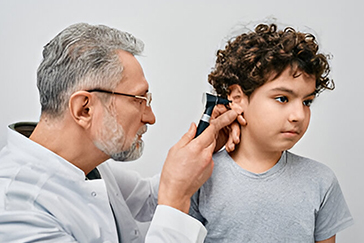
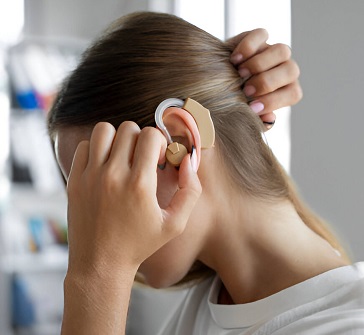
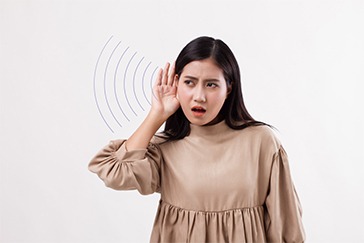
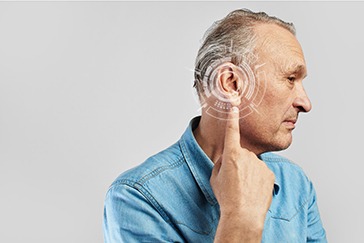
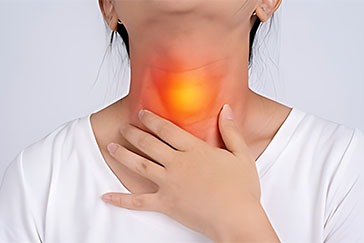
Since the day of its foundation, SHALBY Sanar International Hospitals is committed to provide comprehensive healthcare services. It regularly organizes awareness programs in its premises and encourages outdoor healthcare activities and camps with an intent to put focus on preventive healthcare.
VIEW ALL